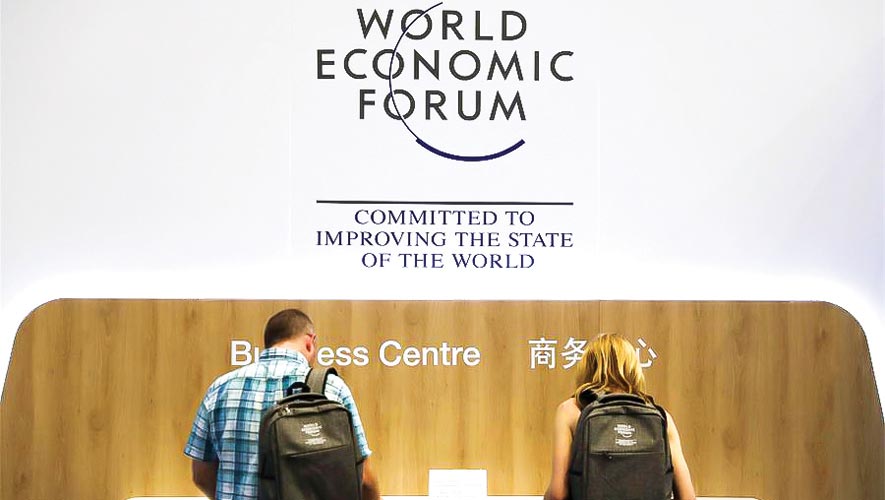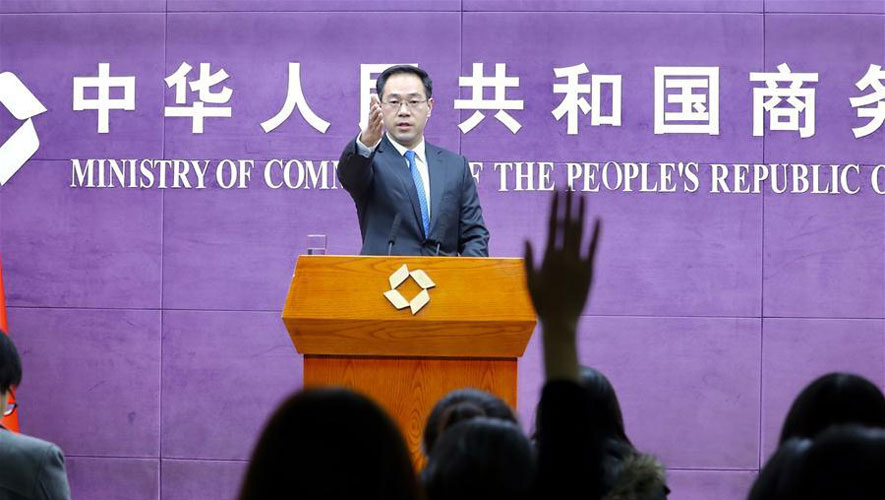In this era of anti-globalisation, the importance of having market space is constantly manifesting in the “buyers’ world” where overproduction is rampant. John Chen, president of the reinsurance company in Swiss Re China, said at the Summer Davos Forum that the “future belongs to China, and the entire Swiss Re regards China as a strategically important market. The importance of the Chinese market is unquestionable”. Swiss Re’s emphasis on China’s importance is not only a compliment to China in the context of US-China trade war but also a confirmation on the importance of the Chinese market.
For the latest Cambodian Business news, visit Khmer Times Business
John Chen further pointed out that there are two main reasons why the Chinese market has become a strategically important market for Swiss Re. First, concerning future growth expectations, the Chinese market still maintains a growth rate that no other market in the world has ever experienced, and there are still high growth expectations for China in the next two to three decades.
According to the research report of Swiss Re Institute, emerging markets in China and Asia are still the engine of insurance growth. It is estimated that the average annual growth rate of China’s non-life insurance premiums will reach 7.4 percent in the next decade from 2020. In terms of life insurance, it is estimated that the average annual growth rate of China’s life insurance premiums will reach 9.1 percent in the next decade.
Another reason for this is the difference within the market. Swiss Re believes that compared with the entire Asian market, the Chinese market has some inherently different characteristics. China’s growth potential, population, and inadequate insurance protection are all important factors that should be taken into account. China’s national treatment and stable policy expectations provided by the implementation of its regulatory policies are also the prerequisites for Swiss Re to maintain its long-term attention to China.
As an independent strategic think tank, Anbound has proposed and advocated for the importance of the “Chinese market” from the perspective of public policy, and pointed out that this is what China will face in its “post-world factory” phase. More importantly, building up the “China market” is in line with China’s transition to becoming a consumption-oriented society. From “Made in China + World Factory” to “Chinese Market + Consumption-oriented Society”, this is becoming the underlying trend of the future development for the Chinese society. We believe that Swiss Re possesses a certain representativeness to its definition of the Chinese market. As a major power, maintaining strategic value to the world market is extremely vital for China. In the new era of globalisation, having a strategic-level market is actually an element of a country’s national competitiveness.
Anbound has previously analysed that the focus of China’s future relationship with the world gradually shift its focus to competition in the global market space. This indeed will be the core element and focus of the future relationship between China and the world (Chen Gong, March 15, 2018). The deteriorating US-China trade friction is actually a gradual open and transparent battle for market space.
While anti-globalisation has caused the world economic environment to deteriorate, China is fortunate in the sense that it has a huge and positively growing internal market. Based on such an important strategic resource, maintaining and strengthening the strategic influence of the “Chinese market” for a prolonged period is related to the long-term development and international competitiveness of China in the future.
We believe that the importance of maintaining a strategic market depends on a number of key factors.
The first is the long-term growth of the market. A market with long-term growth will attract continuous investment, as well as retention of industrial and financial capital. For the long-term growth of a country, the core foundation is having a steady and sustained growth of its economy and having a growth of its consumption power. As a populous country, it will not be difficult for China to achieve a large-scale market. The difficulty here is to maintain a steady and sustained growth. This is the basic goal that China should aim to achieve in its national strategy and policy. China’s challenges in economic transformation, consumption dynamics, debt pressures, social security deficiencies, potential financial risks, and ageing will collectively affect the long-term growth of its internal market.
The second is the openness of the system. The history of globalisation and China’s development experience have proved that only by opening-up can it bring sustainable economic development and social progress. It is crucial for China to maintain a sustainable economic growth and market-based openness. There is no issue for Chinese high-level decision-makers in China’s adherence to the strategy of opening-up, though it would be easy for the country to encounter problems caused by insufficiencies in the opening-up system. It is only with institutional guarantees for opening-up that the investors can be assured, and hence allow systematic opening-up to form a smooth market environment. The future market opening-up will move China further towards more pronounced national treatment, adherence to international rules, as well as fairness and transparency.
The third is having a policy environment conducive to market development. Some foreign investors concluded that the support of the Chinese government on foreign investment in the Chinese market is unmatched by that of other markets, and the policies introduced are to promote the development of the industry. This thought is not shared by all foreign investors. However, it should be said that based on China’s opening-up to the world, to its support from governments at all levels and diversified policy support, the policies are important to China’s development achievement when it transited from a planned economy to a market-based one. When the degree of marketisation is flawed, policy support could act as an effective compensation.
In order to maintain the advantages of a strategic market, China needs to have a “world-class” upgrade in its future policy formulation and design efforts.
The fourth is the environment centred on the rule of law. The market economy is an economy based upon credit and rule of law. It is only through the rule of law that market credit can be maintained at a high level. China’s national governance has the characteristics of centralisation. However, an issue that centralisation must deal with is the relationship with the rule of law. While short-term reform or anti-corruption measures can be promoted by having a strong central government, to ensure the long-term and institutionalisation of reform and anti-corruption results, it is necessary to transfer those measures from national governance to the rule of law in order to achieve true long-term stability.
The fifth is having an ideological environment conducive to technological innovation. A market which possesses strategic importance and influence is not only the result of an accumulation of material wealth and simple economic growth, but also the result of diverse fields that include science and technology, culture, ideology and values. To achieve this, China needs an environment that encourages technological and intellectual innovation. Ideological innovation appears to be something abstract, but at the stage of national development and upgrading, it will become increasingly important. It will be an important foundation to support China’s confidence in treading its own path. It should be emphasised that the issues related to education that are highly emphasised by the Chinese society are also closely related to the ideological environment that encourages innovation. If there is no environment that encourages innovation, a market with strategic importance will inevitably degrade.
Our final analysis involves maintaining the strategic importance of the Chinese market should be a strategic goal that the Chinese government needs to pay close attention to. We feel that system openness, policy support, rule of law, and the presence of an environment of innovative thinking are crucial to maintaining the strategic importance of the Chinese market.
He Jun is a master in the Institute for the History of Natural Sciences, Chinese Academy of Sciences, majoring in intellectual history of science and is a senior researcher at Anbound Consulting, an independent think tank with headquarters in Beijing. Established in 1993, Anbound specialises in public policy research




